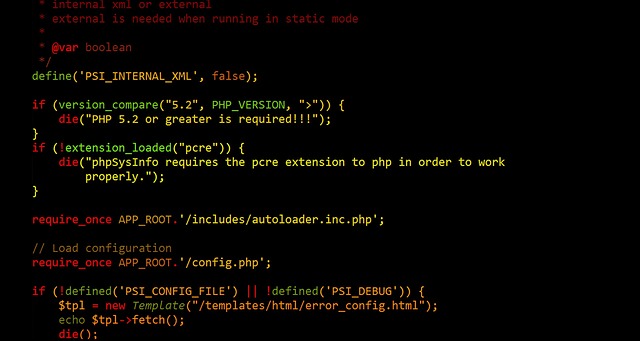When deciding to deploy an ERP system, an organization must choose between customizing an existing package or developing a brand new one from scratch. But what does this actually mean? What is the trade-off between the two approaches? And more importantly, which one is the best option?
The traditional approach of ERP system development has become increasingly inadequate due its rigid structures and inefficient offerings, resulting in an inability to quickly adjust to changing customer needs. This has been especially evident in the pharmaceutical and manufacturing industries, where the cost of maintaining and managing ERP solutions is increasingly prohibitive. According to a study by IBM, “data integration costs account for up to 80 percent of total ERP project expenses.” Additionally, customization of existing ERP solutions can be both expensive and time consuming, as it requires the implementation and integration of multiple third-party applications requiring regular maintenance.
In this article, you will learn about the process of custom ERP development and its advantages over existing ERP systems. In particular, we will explore how creating a customized solution offers better flexibility and scalability by allowing organizations to customize their ERP system to suit their specific process requirements. We will also examine the benefits of having full control over data management and the ability to customize the ERP system in order to reduce on-going costs. Finally, we will consider the different options available for custom ERP development.
By the end of this article, you should have a greater understanding of the advantages offered by custom ERP development, and how your organization can benefit from building an ERP system tailored to your unique business process requirements.
Definitions
Custom ERP development is the development and implementation of an enterprise resource planning (ERP) system customized specifically for a specific business. It is a way to achieve better business efficiency and effectiveness through the use of technology. Custom ERP development enables businesses to measure, track, and manage different processes and the flow of information between the different departments in the organization.
ERP stands for Enterprise Resource Planning. It is a type of software system that helps businesses to automate and streamline their organization’s processes, operations, and data storage. ERP systems allow the management of and access to various areas of a business, such as accounting, human resources, customer relationship management, sales, manufacturing, and supply chain.
Customization is the process of adapting a software to the unique needs of the individual customer. This allows the customer to customize the systems and processes to maximize efficiency and get the most out of the ERP system. Customization also gives the customer control over how and where the data is stored and how it is accessed.
Development is the process of designing, coding, and testing ERP systems and ensuring they meet the customer’s needs. ERP developers use a variety of programming languages, as well as design tools such as graphical user interface (GUI) builders, workflow development tools, and database administration tools, to create an ERP system that works for the customer.
Implementation is the process of installing and configuring the software to ensure it meets the needs of the customer. The implementation process includes designing the system architecture, setting up the databases, configuring the processes, and testing the system to ensure it meets the customer’s specifications.
Overall, custom ERP development is the process of creating an ERP system tailored to the specific needs of the customer. This allows the customer to get the most out of their ERP system and ensures they are utilizing the most data-driven processes possible.
Understanding Custom ERP Development
What is Custom ERP Development?
Custom Enterprise Resource Planning (ERP) development is the process of creating a software solution that meets the exact needs of a given company. This is done by modifying, integrating, and/or expanding existing ERP packages with custom-built applications and/or interfaces. It is done by a team of software engineers and business professionals working together to define, confirm, and develop an organization’s unique requirements.
Custom ERP development involves the careful planning and implementation of various components that work together in order to create a single, unified system. These components can include customer relationship management (CRM) software, supply chain management (SCM) tools, accounting and budgeting packages, as well as customer service and sales force automation tools. In addition, it requires careful data integration, an important part of custom ERP development, as data must be collected from multiple sources and properly organized into the ERP system.
Benefits of Custom ERP Development
Custom ERP development can bring numerous benefits to an organization, including:
- Cost savings – Custom ERP development allows organizations to create software solutions that meet their exact needs, while eliminating the need to purchase expensive off-the-shelf packages.
- Flexibility – Custom ERP development can be tailored to an organization’s unique needs, making it more adaptable and responsive to changing business conditions.
- Integration – Custom ERP development allows for easy integration of data from multiple sources, making it simpler to keep track of a wide range of information.
- Efficiency – Custom ERP development makes it easier to manage data, create reports, and analyze information. This helps organizations make more informed decisions more quickly.
- Scalability – Custom ERP development allows organizations to scale up or down their ERP systems as their needs change.
Custom ERP development can be time-consuming and expensive, but when done correctly it can provide organizations with a powerful and cost-effective solution for managing their data and operations. By taking the time to carefully analyze the unique needs of an organization, custom ERP development can create a system that meets an organization’s specific needs and helps them optimize their processes.
Benefits of Custom ERP Development
Custom Enterprise Resource Planning (ERP) is the use of integrated software solutions to manage a business’s processes such as accounting, manufacturing, and human resources. Building a custom ERP solution allows a business to tailor the software to meet their specific needs, providing enhanced flexibility and scalability. There are a variety of benefits to developing a customized ERP solution for a business which can help streamline operations, increase efficiency, and ultimately improve the bottom line.
Improved Processes and Data Management
Custom ERP implementation allows businesses to tailor their software to meet their company’s specific needs and workflow. With the right strategy and implementation, an ERP solution can streamline existing processes, automate manual tasks, and integrate disparate systems. This can help ensure that all of the data is up-to-date and consistent, improving the accuracy of reporting and minimizing errors.
Better Scalability and Flexibility
A good custom ERP implementation will provide a business with the ability to make changes to their operations quickly and easily as the company grows. The solution can be built with robust scalability features making it easy to adjust processes and add or remove data as needed. This ensures that the business will not have to face costly delays due to the need to purchase and implement new software or legacy systems as the company’s size and scope changes.
Custom ERP implementation also allows the business to expand its processes and functionality in-line with the company’s growth. It can also incorporate the latest technologies and trends and can be kept up-to-date with support and maintenance plans. This helps to ensure that the company remains competitive in its market and on par with industry standards.
The development of customized ERP solutions can provide a business with a competitive edge, allowing them to optimize their operations and improve their performance. This, in turn, can lead to improved customer satisfaction, lower expenses, and better profitability. With the right implementation, a business can be ready to move forward and achieve greater success.
Challenges of Custom ERP Development
What is Custom ERP Development?
Custom enterprise resource planning (ERP) development is the process of developing software tailored to match the specific needs of business entities. It can combine the internal processes of several departments into one system, often with the help of a system integration or customization specialist. This specialist will use their expertise to configure the system according to the requirements of the business. Instead of using out-of-the-box software, custom ERP development is the practice of making a system that meets the particular needs of your business.
Benefits of Custom ERP Development
Custom ERP development is beneficial for businesses, as it offers a range of advantages compared to more generic software solutions. For starters, it is specifically designed to satisfy the needs of a particular company, which can include detailed reporting tools, custom modules, unique data structures, and more. Custom ERP development is also far more cost-effective, as businesses are not required to purchase a pre-packaged system and can instead tailor an ERP system to their exact needs. Additionally, customizing a business’s ERP system can allow it to remain compliant with industry regulations.
Finally, custom ERP development offers businesses a greater level of control when it comes to managing their own processes. Companies can easily customize the ERP system to fit their needs, ensuring that all processes and process steps align perfectly with the business’s goals and objectives. Moreover, custom ERP development enables businesses to use existing business applications, such as accounting, Salesforce, and others, and integrate them into the ERP system. This capability provides businesses with greater scale, scalability, and collaboration options.
Challenges of Custom ERP Development
Despite its advantages, custom ERP development presents a few challenges. For starters, development costs can be high, as it requires a skilled professional with a high level of technical expertise. This is especially true for organizations that require a highly customized system, as the development process can be more complex. Furthermore, the integration of new databases and modules can cause delays, which can increase the time to market and the cost of the project. Additionally, custom ERP solutions can be more difficult to maintain, as bug fixes or changes must be made manually.
Overall, custom ERP development is an ideal solution for businesses that want a tailored system that meets their specific needs. With the help of the right professionals, businesses can benefit from the many advantages that custom ERP development has to offer. However, it is also important to be aware of the potential challenges associated with the process. With careful planning and the right specialists, businesses can ensure that their custom ERP development project is successful.
Conclusion
The development of custom ERPs is an important step in taking a business operation to the next level. This process emphasizes the unique challenges and requirements of individual businesses, going beyond the one-size-fits-all methodology of many ERPs. But with so many moving parts, what must be considered when it comes to custom ERP development?
For businesses looking to develop a custom ERP solution, the best way to get started is to stay on top of industry news. Keeping up with the latest developments in custom ERP development, and understanding the advances in this technology can help businesses make more informed decisions. To stay informed, follow our blog for detailed insights on the latest trends in custom ERP solutions and releases.
Frequently Asked Questions:
Q: What is custom ERP development?
A: Custom ERP development is the process of designing a software solution to fit the unique needs of a business or industry. This approach goes beyond the one-size-fits-all solution of many ERPs, and allows software to be tailored to the specific requirements of the business.
Q: What are the benefits of custom ERP development?
A: Adopting a custom ERP solution can help streamline processes, reduce costs, and boost efficiency. It can also improve security, provide better data management, and offer greater flexibility and scalability.
Q: What must be considered when it comes to custom ERP development?
A: When it comes to custom ERP development, it is essential to consider factors such as the needs and requirements of the business, data security and management, cost, scalability, process optimization, and customer service.
Q: What is the best way to stay informed of new trends in custom ERP solutions?
A: Following industry news is the best way to stay up to date with new trends in custom ERP solutions. Keeping tabs on the latest developments in custom ERP solutions can help make informed decisions.
Q: How can I learn more about custom ERP solutions?
A: To gain a comprehensive understanding of custom ERP solutions, it is important to research topics such as system integrations, cloud migration, data management, and process automation. Consulting with experts in the field can also provide helpful insights.



